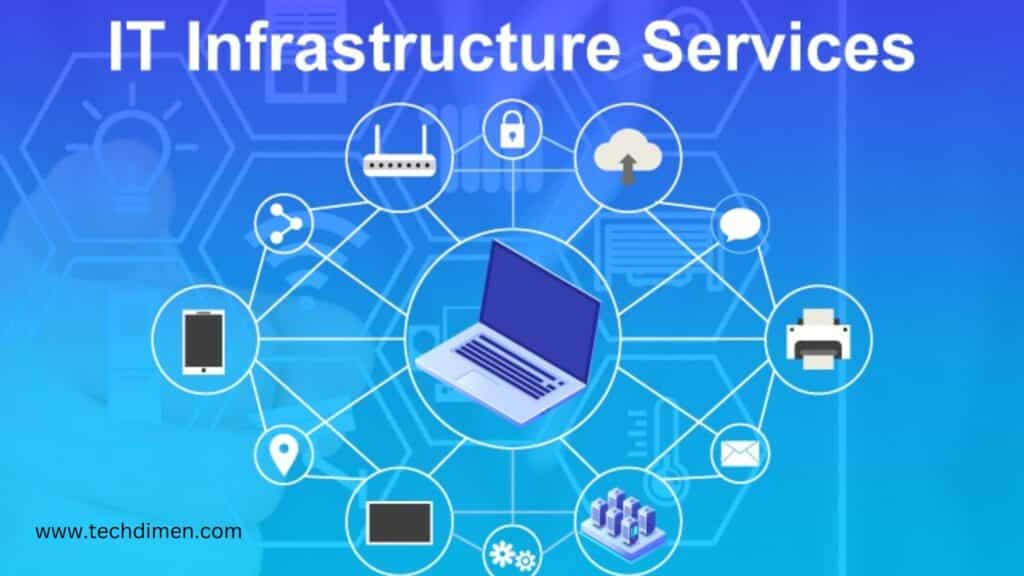Imagine running a massive orchestra where every musician plays a different instrument and somehow, everything still sounds perfectly in tune. That’s what Ops Technology does for modern businesses. It’s the tech backbone that keeps your digital systems humming, your data flowing, and your services running like clockwork even when no one notices.
What Is Ops Technology short for, refers to the tools, platforms, systems, and practices that support the behind the scenes work of IT Operations, business operations, and increasingly, automated infrastructure. From managing servers and networks to handling cloud deployments and security incidents, Ops Tech is the digital command center of any modern enterprise.
But here’s the twist: it’s no longer just about keeping the lights on. Today, Ops Tech is smart, automated, and adaptive. It uses machine learning, real-time monitoring, and self healing systems to minimize downtime, boost efficiency, and empower tech teams to scale faster than ever.You interact with its results every day whether you’re logging into an app, accessing cloud storage, or getting lightning-fast customer support. Behind the scenes, Ops Technology is pulling the strings, making it all look effortless.
In today’s digital landscape, IT operations commonly referred to as IT Ops play a pivotal role in maintaining the health and functionality of a company’s technology infrastructure. From maintaining critical business applications to securing massive data environments, IT operations ensure your organization stays online, secure, and agile.
IT Operations

At its core, IT operations involves all activities related to the management, support, and delivery of IT services and infrastructure. This includes server administration, data center management, network oversight, application support, user service management, and more. These tasks are executed to ensure optimal performance, availability, and security of business systems.
The Role of IT Operations in Business Success
Without well-structured IT operations, businesses face considerable risks ranging from downtime and poor customer experience to data breaches and revenue losses. A dependable IT Ops strategy enhances system uptime, provides efficient troubleshooting, supports digital transformation, and aligns technology functions with organizational goals.
In 2025, IT Ops extends beyond traditional roles and now includes responsibilities tied to cloud integration, containerization, and hybrid environments.
Core Functions and Responsibilities in IT Ops
Monitoring and Incident Response What Is Ops Technology
One of the critical roles of IT operations is system monitoring. Tools like Datadog, Splunk, and New Relic help detect irregularities such as CPU spikes, memory leaks, or server failures. Once an issue is flagged, the IT operations team activates protocols to investigate, contain, and resolve the incident, often following a predefined incident management plan.
Configuration and Patch Control What Is Ops Technology

Maintaining consistent system configurations across all environments is vital for stability and compliance. Configuration management tools such as Puppet and Chef are used to automate deployments and updates. Regular patch management ensures that vulnerabilities are addressed quickly, minimizing the risk of exploits.
Structured Change and Problem Resolution What Is Ops Technology
Every update or change in the IT environment should go through an approval and testing cycle. This is managed using change management frameworks. Meanwhile, when recurring issues appear, problem management processes focus on finding and eliminating the root causes through structured analysis.
Network and Infrastructure Oversight What Is Ops Technology

The health of an organization’s networks both internal and cloud based balls under the purview of IT Ops. Network engineers manage load balancers, firewalls, VPNs, and ensure high speed, secure connectivity. Infrastructure professionals support everything from bare-metal servers to virtualized cloud environments.
Performance Optimization and Capacity Forecasting
Anticipating infrastructure needs helps avoid slowdowns or system crashes. Through capacity planning, IT teams analyze system usage trends to forecast future demands and optimize accordingly. This ensures seamless scaling during business growth or seasonal traffic spikes.
User Support and Help Desk Management
The IT help desk remains a cornerstone of IT operations. Support teams manage incident tickets, troubleshoot hardware and software issues, assist with password resets, and ensure employees stay productive. Platforms like ServiceNow and Freshservice streamline ticket routing, SLA compliance, and resolution tracking.
Differentiating IT Operations from IT Infrastructure
While closely connected, IT infrastructure and IT operations serve distinct functions. IT infrastructure refers to the underlying physical and virtual components servers, routers, storage devices whereas IT operations focus on running and maintaining those components to support dayo day business activities. Think of infrastructure as the body, and operations as the vital systems that keep it alive and moving.
IT Ops vs DevOps: Complementary But Different
DevOps is a methodology focused on software development and delivery automation, emphasizing collaboration between development and operations. IT Ops, on the other hand, prioritizes system reliability, availability, and support. While DevOps delivers speed and agility, IT Ops ensures stability and compliance. Organizations benefit most when both teams collaborate closely, forming a bridge between innovation and continuity.
Who’s in the IT Operations Team
IT Operations Manager
This role includes setting strategic direction, implementing policies, managing vendors, and overseeing performance metrics. The operations manager is responsible for making sure the IT systems align with business goals.
Systems Administrator What Is Ops Technology
Responsible for installing, updating, and maintaining servers, systems administrators ensure systems run efficiently and securely. They respond to alerts and perform diagnostics when issues arise.
Network Engineer What Is Ops Technology
Specialized in maintaining and designing secure and efficient networks, network engineers manage connectivity across local and cloud environments, ensuring there are no communication bottlenecks.
Cloud Operations Engineer
These engineers optimize cloud-based services such as AWS, Azure, or Google Cloud. They handle deployment, cost optimization, and monitoring of cloud resources.
Support Technicians and Analysts
Frontline professionals provide user support, escalate issues, and manage IT service tickets. They ensure smooth day-to-day tech experiences for employees.
Career Outlook in What Is Ops Technology
With digital systems expanding, job roles in IT Ops are increasing. High-demand positions include IT operations analyst, NOC technician, systems administrator, and cloud operations engineer. Candidates with skills in scripting, automation, cloud platforms, and ITSM tools are in particularly high demand.
Embracing IT Automation What Is Ops Technology
Automation tools streamline repetitive tasks, reduce errors, and boost efficiency. Platforms like Ansible, Terraform, and Chef allow IT teams to manage infrastructure through code. This means server deployments, patches, and rollbacks can happen in minutes, not hours, significantly improving agility.
The IT Operations Lifecycle Explained What Is Ops Technology
Planning
Involves strategic forecasting of IT resources based on anticipated demand. Businesses must assess usage patterns and future growth to align system capacity accordingly.
Provisioning
This step includes setting up servers, virtual machines, and other resources. Cloud-based provisioning enables faster deployments and elasticity.
Monitoring
Continuous monitoring helps detect anomalies and maintain service levels. Tools must offer visibility into network health, application performance, and user experience.
Incident Management
This phase focuses on quickly identifying issues, resolving service disruptions, and communicating effectively with stakeholders. Clear escalation paths and automated alerting reduce downtime.
Maintenance
Includes routine updates, patching, and preventive measures to ensure continued system health. Scheduled maintenance windows help minimize business impact.
Optimization What Is Ops Technology
Performance tuning, cost optimization, and configuration adjustments are ongoing. This ensures infrastructure remains lean, efficient, and secure.
Proven Best Practices What Is Ops Technology
Effective IT operations are built on standards and discipline. Documentation plays a key role every process should be captured in an SOP (standard operating procedure). This promotes consistency and reduces human error.Root cause analysis is critical after any major incident. Instead of treating symptoms, IT Ops professionals investigate why something failed and implement changes to prevent recurrence.
Many organizations now rely on a CMDB Configuration Management Database. This provides visibility into asset relationships and improves change and incident response.
A Zero Trust approach to security ensures every device and user is authenticated before gaining access to systems. This model reduces risks in today’s hybrid work environments.
Modern observability platforms go beyond alerts. They analyze logs, metrics, and traces to provide deep insights into systems. Observability ensures teams not only know that something is wrong but understand why.
Trends That Are ShapingWhat Is Ops Technology 2025
The landscape of What Is Ops Technology is evolving fast. AIOps short for Artificial Intelligence in IT Operations uses machine learning to identify issues and trigger auto responses. This results in faster resolutions and fewer manual interventions.Organizations are also adopting multi-cloud and hybrid environments. Managing AWS, Azure, and on-prem systems requires centralized control tools and robust policies.
Edge computing and 5G technologies are pushing computing resources closer to users, demanding faster, more decentralized IT Ops approaches.Integration of DevSecOps introduces security checks at every stage of development and deployment. IT Ops must ensure environments remain compliant without slowing down innovation.
Finally, observability has become a top priority. With complex microservices and distributed systems, traditional monitoring falls short. Observability offers a 360-degree view that supports real-time decision-making.
Choosing the Right Tools and Vendors What Is Ops Technology
When selecting IT Ops tools, consider factors like ease of integration, scalability, user experience, and cost. ServiceNow leads in ITSM automation, while Datadog and New Relic offer advanced monitoring and observability. Terraform is a top choice for infrastructure as code, enabling rapid and consistent deployments across environments.
Real World Examples of IT Ops Excellence

A leading hospital network integrated Ansible and Splunk to automate server patching and log analytics. As a result, they reduced incident response times by 70%, ensuring better uptime and patient care.
A global retail chain implemented Terraform and ServiceNow to manage server provisioning. By automating the process, they cut deployment time by 80% and reduced errors significantly.
Frequently Asked Questions About IT Operations (IT Ops)
What is IT operations in simple terms?
IT operations, or IT Ops, refers to the set of tasks and services that support the day to day functioning of IT infrastructure and software systems. This includes managing servers, monitoring networks, ensuring security, supporting users, and maintaining system uptime.
What does an What Is Ops Technology team do?
An IT operations team handles the deployment, monitoring, maintenance, and optimization of IT systems. They also manage incidents, apply patches, oversee network activity, support help desk functions, and ensure systems run securely and efficiently.
Why are IT operations important?
IT operations are essential because they keep all digital services running. Without IT Ops, businesses face system outages, data loss, security risks, and poor user experiences. Strong IT operations support business continuity, productivity, and innovation.
How is IT operations different from IT infrastructure?
IT infrastructure refers to the physical and virtual components like servers, storage, and network devices. IT operations are the processes and people that manage and maintain those components. Operations keep the infrastructure functioning optimally.
Is IT operations the same as DevOps?
No. IT operations focus on stability, uptime, and support, while DevOps emphasizes rapid software delivery and collaboration between development and operations. They work together, but DevOps is more development-centric, and IT Ops is operations-centric.
What tools are commonly used in IT operations?
Popular tools include ServiceNow for ITSM, Datadog for monitoring, Ansible for automation, Splunk for log analysis, and Terraform for infrastructure as code. These tools help streamline workflows, improve visibility, and increase efficiency.
What skills are required for a career in IT Ops?
Skills include knowledge of system administration, networking, cloud platforms (like AWS or Azure), scripting (like Python or Bash), monitoring tools, ITIL practices, and security. Problem-solving and communication skills are also crucial.
What is the IT operations lifecycle?
The IT Ops lifecycle includes planning, provisioning, monitoring, incident management, maintenance, and optimization. This cycle ensures systems are prepared, stable, and continuously improved over time.
What are examples of IT operations tasks?
Examples include installing updates, managing firewalls, configuring networks, responding to outages, automating server provisioning, conducting root cause analysis, and handling user support tickets.
What does an IT operations manager do?
An IT operations manager oversees the strategy and execution of IT Ops. They coordinate teams, manage vendor relationships, set policies, monitor KPIs, and ensure the IT environment aligns with business goals.
How does automation impact IT operations?
Automation streamlines repetitive tasks like patching, server deployment, and log analysis. It reduces human error, saves time, and allows IT teams to focus on strategic work. Tools like Puppet, Chef, and Terraform are widely used in IT automation.
Are IT operations still relevant with the rise of cloud computing?
While cloud platforms simplify infrastructure management, IT operations evolve to manage multi-cloud, hybrid environments, security, compliance, and performance. Cloud-native operations are now a core part of IT Ops.
What are the best practices in IT operations?
Key best practices include maintaining documentation, using a CMDB, applying root cause analysis, following the ITIL framework, implementing Zero Trust security, and embracing observability for end-to-end system insights.
What’s the difference between IT Ops and Site Reliability Engineering (SRE)?
SRE is a discipline that applies software engineering principles to operations. It focuses on automation, system reliability, and performance. What Is Ops Technology overs a broader scope, including support, maintenance, and user services, whereas SRE is more specialized.
What trends are shaping What Is Ops Technology in 2025?
Major trends include AIOps (AI in IT operations), hybrid cloud management, Zero Trust architecture, edge computing, observability, and the integration of DevSecOps. These trends aim to make IT Ops more agile, predictive, and secure.
Conclusion:What Is Ops Technology
In 2025, IT operations are the unsung heroes of modern enterprise. Far from just keeping the lights on, IT Ops drives innovation, prevents crises, and supports every business unit. Whether through automation, observability, or cloud integration, IT Ops transforms complexity into continuity. Investing in the right people, processes, and platforms will ensure your operations team remains a strategic advantage in the digital age.

Jhon AJS is a tech enthusiast and author at Tech Dimen, where he explores the latest trends in technology and TV dimensions. With a passion for simplifying complex topics, Jhon aims to make tech accessible and engaging for readers of all levels.







